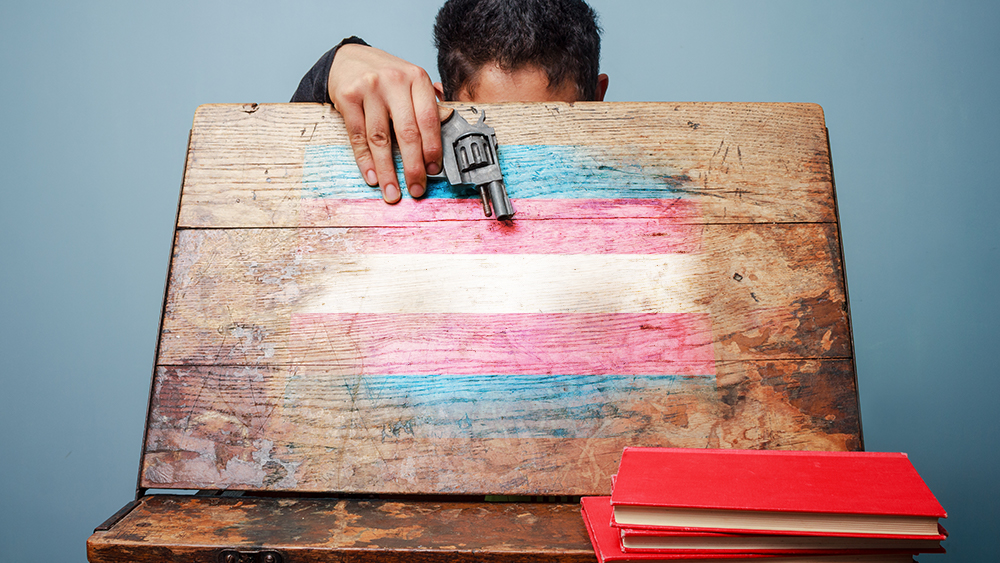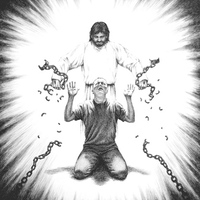Police Find Mysterious ‘Note’ Next to Deceased Boeing Whistleblower, as Lawyers Assert Client Was Not Suicidal https://www.infowars.com/posts/police-find-mysterious-note-next-to-deceased-boeing-whistleblower-as-lawyers-assert-client-was-not-suicidal/
People
Circles
Posts
Like say, literally NOT FUNNY - THEM (genocidal do &/or SELF suicidal die nightmarish horror "EH" trying) of Power, misc USA-globally (fill in blank's) B-ing however like say in 2001 film-movie, "Jeepers Creepers", when Darry Jenner fell down in2 the hole & saw the former late human dust & ash corpse skin flesh upon all the wall's like mere wallpaper & tried 2 verbally convey 2 Trish Jenner; via (above) - The ancient (very centuries old), sort of ie: Greek mythology like Chimera, immortal, nearly invincible humanoid giant bat winged, regenerate-able (by way of it's prey's human body-organ's & flesh which is solely why it exists = 2 feed) cannibalistic hunter killer demon Being who seeks-approaching his prey with more slick sort of evil semi (funny?) wise guy ease but determined oriented, & it's prey's internal within physical body organ's of humans it eats ie: past ritual's involving human sacrifice's & with it's dark reptilian Green color skin & mouth filled yellow fang's & atop of it's head a series of finger like appendages connected 2 each by a thin membrane & R often pressed close 2 it's head = when excited or angered - they shall flare scaringly outward & with no real human language speech & present since the past historical Aztec era Creeper character.
Another gender confused teenage mass shooter kills 1 child, injures 5: Pushing gender madness on our nation’s children is creating murderers and suicidal teens
https://www.naturalnews.com/2024-01-09-another-gender-confused-teenage-mass-shooter.html

Once again we see a young mass shooter who is gender confused, making this the fifth in a little over five years where a non-binary, transgender, or others part of the LGBT community, has become a mass shooter. (Article by Susan Duclos republished from AllNewsPipeline.com) The increase in killers from the LGBT community directly correlates […]
www.naturalnews.com
Videos
Prosecutors knew Matthew Perna was suicidal when they tried to lock up this non-violent January 6th defendant for as long as they could. It was more than he could bear.
The rest of Matthew’s disturbing story continues…
People
Circles
Videos
Prosecutors knew Matthew Perna was suicidal when they tried to lock up this non-violent January 6th defendant for as long as they could. It was more than he could bear.
The rest of Matthew’s disturbing story continues…
Posts
Police Find Mysterious ‘Note’ Next to Deceased Boeing Whistleblower, as Lawyers Assert Client Was Not Suicidal https://www.infowars.com/posts/police-find-mysterious-note-next-to-deceased-boeing-whistleblower-as-lawyers-assert-client-was-not-suicidal/
Like say, literally NOT FUNNY - THEM (genocidal do &/or SELF suicidal die nightmarish horror "EH" trying) of Power, misc USA-globally (fill in blank's) B-ing however like say in 2001 film-movie, "Jeepers Creepers", when Darry Jenner fell down in2 the hole & saw the former late human dust & ash corpse skin flesh upon all the wall's like mere wallpaper & tried 2 verbally convey 2 Trish Jenner; via (above) - The ancient (very centuries old), sort of ie: Greek mythology like Chimera, immortal, nearly invincible humanoid giant bat winged, regenerate-able (by way of it's prey's human body-organ's & flesh which is solely why it exists = 2 feed) cannibalistic hunter killer demon Being who seeks-approaching his prey with more slick sort of evil semi (funny?) wise guy ease but determined oriented, & it's prey's internal within physical body organ's of humans it eats ie: past ritual's involving human sacrifice's & with it's dark reptilian Green color skin & mouth filled yellow fang's & atop of it's head a series of finger like appendages connected 2 each by a thin membrane & R often pressed close 2 it's head = when excited or angered - they shall flare scaringly outward & with no real human language speech & present since the past historical Aztec era Creeper character.
Another gender confused teenage mass shooter kills 1 child, injures 5: Pushing gender madness on our nation’s children is creating murderers and suicidal teens
https://www.naturalnews.com/2024-01-09-another-gender-confused-teenage-mass-shooter.html

Once again we see a young mass shooter who is gender confused, making this the fifth in a little over five years where a non-binary, transgender, or others part of the LGBT community, has become a mass shooter. (Article by Susan Duclos republished from AllNewsPipeline.com) The increase in killers from the LGBT community directly correlates […]
www.naturalnews.com
Use of Drugs to Restrain Kids in Mental Health Facilities Jumps 141%
Many of these drugs come with “FDA black box warnings such as aggression, addiction, suicidal + homicidal thoughts — the same issues they are trying to treat." — Amy Miller, Reform Pharma
⬇️
https://childrenshealthdefense.org/defender/psychiatric-drugs-chemical-restraints-children-mental-health/?utm_source=sovren&utm_medium=social&utm_campaign=defender&utm_id=20231219

Critics called for an outright ban on chemical restraints in mental health facilities after a study showed a steep rise in the number of children being subjected to them. They cited the lack of informed consent and a culture of medicalization that leads to labeling, misdiagnosis and over-prescribing of drugs that can cause suicidal and homicidal ideation.
childrenshealthdefense.org
Like say, literally NOT FUNNY - THEM (genocidal do &/or SELF suicidal die nightmarish horror "EH" trying) of Power, misc USA-globally (fill in blank's) B-ing however like say in 2001 film-movie, "Jeepers Creepers", when Darry Jenner fell down in2 the hole & saw the former late human dust & ash corpse skin flesh upon all the wall's like mere wallpaper & tried 2 verbally convey 2 Trish Jenner; via (above) - The ancient (very centuries old), sort of ie: Greek mythology like Chimera, immortal, nearly invincible humanoid giant bat winged, regenerate-able (by way of it's prey's human body-organ's & flesh which is solely why it exists = 2 feed) cannibalistic hunter killer demon Being who seeks-approaching his prey with more slick sort of evil semi (funny?) wise guy ease but determined oriented, & it's prey's internal within physical body organ's of humans it eats ie: past ritual's involving human sacrifice's & with it's dark reptilian Green color skin & mouth filled yellow fang's & atop of it's head a series of finger like appendages connected 2 each by a thin membrane & R often pressed close 2 it's head = when excited or angered - they shall flare scaringly outward & with no real human language speech & present since the past historical Aztec era) Creeper character.








